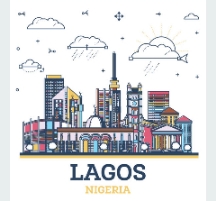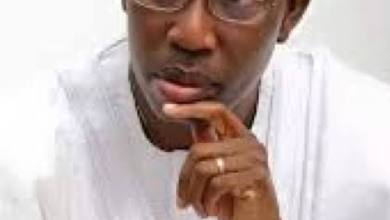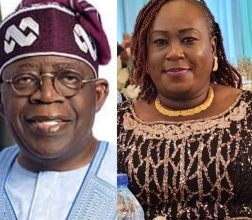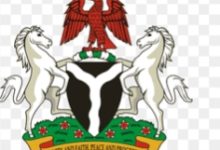
Discrimination against Lagos State indigenes: The leaders needed at this time
By Abanikanda Olumoro
CITIZENS COMPASS –Lagos State has suffered hugely from non-indigenes ruling the state since 1999, they have become wealthy without antecedents of wealth In their family tree. The non-indigenes have succeeded in dividing the indigenes, they pocketed some of their iconic leaders and notable elders. Infact Lagos elders are now described as Mr. Follow, Follow in the words of Fela Anikulapo Kuti. They no longer have an idea of their own but are ready to carry out any anti-indigenous move all for personal gains.
I describe this as Lagos State capture and according to Professor Adele Jinadu of De Renaissance Patriots Foundation, it is Genocide by Immigration which is described as an attack on people’s homeland (Homeland referencing a people’s native land). It is a systematic way that immigrants by commission or omission displaced the ‘Owners of Land’.
Since I put out my thoughts in the last article asking, “Which group is Egbe Omo Eko?” as a prelude to another write-up to come, there has been no single reply, answering the all-important question, yearning to know the representative status of some persons who attended a Sunday December 29, 2024 meeting with President Bola Tinubu in his Lagos residence, tagged a “meeting with Egbe Omo Eko”.
Lagos State, Nigeria’s commercial hub and cultural melting pot, is facing an existential crisis of leadership. The state’s indigenous people, collectively known as IBILE (Ikeja, Badagry, Ikorodu, Lagos Island, and Epe), are at risk of being politically marginalized by non-indigenous residents who have increasingly taken control of the state’s political, economic, social and cultural power.
This trend threatens to erode the identity and rights of the natives, prompting urgent calls for a new generation of leaders who will protect and promote the interests of Lagos indigenes.
Lagos has a unique historical status. It was never part of the Western Region during colonial rule but stood as a distinct colony. Even at Nigeria’s independence in 1960, Lagos remained separate from the Western Region.
In 1967, following the persistent efforts of indigenous leaders like Chief Oluwa, Oba Musendiku Adeniji-Adele, Professor Fatai Williams, Prince Ladega Adeniji-Adele, Mr Pereira, Brigadier General Mobolaji Johnson (Rtd) and Falm, Lagos State was officially created by General Yakubu Gowon’s military government.
Despite this proud history, since the return of democracy in 1999, only one Lagos indigene has governed the state.
In contrast, all other states in the federation have been consistently led by their natives. Non- indigenous residents from neighboring southwestern states have consolidated political power in Lagos, treating it as a “farmland” to cultivate their own political and economic gains.
This trend is both alarming and disheartening for Lagos indigenes. The so-called “Egbe Omo Eko” group, which recently held a meeting with President Bola Tinubu, failed to represent the true aspirations of Lagos’s native people.
Instead of advocating for the political rights of indigenous, the meeting appeared more like a photo opportunity, with little to show in terms of tangible outcomes.
Lagos indigenes are now at a crossroads. The disunity and passivity of their leaders have allowed outsiders to dominate the state’s political landscape.
Historically, leaders like Alhaji Lateef Jakande, Alhaji Ganiyu Dawodu, Engr. Funsho Williams, Prince Ademola Adeniji-Adele, Senator Kofoworola Akerele-Burknor and Prince Adelani Adeniji-Adele were renowned for their courage, vision, and commitment to the welfare of Lagosians.
Today, however, many of the surviving elders, such as Alhaji Lateef Okunnu and Prince Tajudeen Olusi, have failed to step into the roles of defenders of indigenous rights.
The IBILE people have made their demands clear. By 2027, they want indigenous Lagosians to occupy the state’s top five political positions: Governor, Deputy Governor, Speaker of the State House of Assembly, Secretary to the State Government, and Head of Service. These positions represent the minimum expectation of a people seeking to reclaim their political heritage and secure their future.
However, achieving this goal requires bold, courageous, and selfless leaders who are willing to fight for the rights of their people. The current political dynamics, where indigenes are sidelined in favor of outsiders, must change. Lagos needs leaders who can inspire unity and ignite a sense of pride and purpose among its natives.
The year 2027 presents a unique opportunity for Lagos indigenes to reclaim their political power. To achieve this, they need leaders who are not only competent but also deeply committed to protecting the interests of IBILE communities. These leaders must be able to withstand external pressures and remain focused on the welfare of their people.
Such leadership must prioritize fairness, justice, and progress for all residents of Lagos, while ensuring that the rights of indigenous people are not trampled upon. The struggle is not about excluding non-indigenes but about ensuring that the political balance in Lagos reflects the interests of those who have historically called it home.
The call is for a new generation of leaders who will continue the legacy of past heroes like Chief H.O. Davies, T.O.S. Benson, and Oba C.D. Akran. These leaders must be bold, strategic, and prepared to take on the responsibility of guiding Lagos toward a brighter future.
The fight for the political rights of Lagos indigenes is not just about politics; it is about preserving a legacy and ensuring that the cultural identity of the state remains intact. It is a call for fairness, justice, and inclusion in the governance of Lagos State.
The leaders Lagos needs at this time must be visionary, selfless, and courageous. They must rise above personal interests and unite the IBILE communities to achieve their shared goal of reclaiming political power by 2027. Only then can the true spirit of Lagos be reignited, and the rightful place of its indigenes restored in the state’s leadership.
The time to act is now. The future of Lagos depends on it.
Abanikanda Olumoro writes from the United Kingdom.







